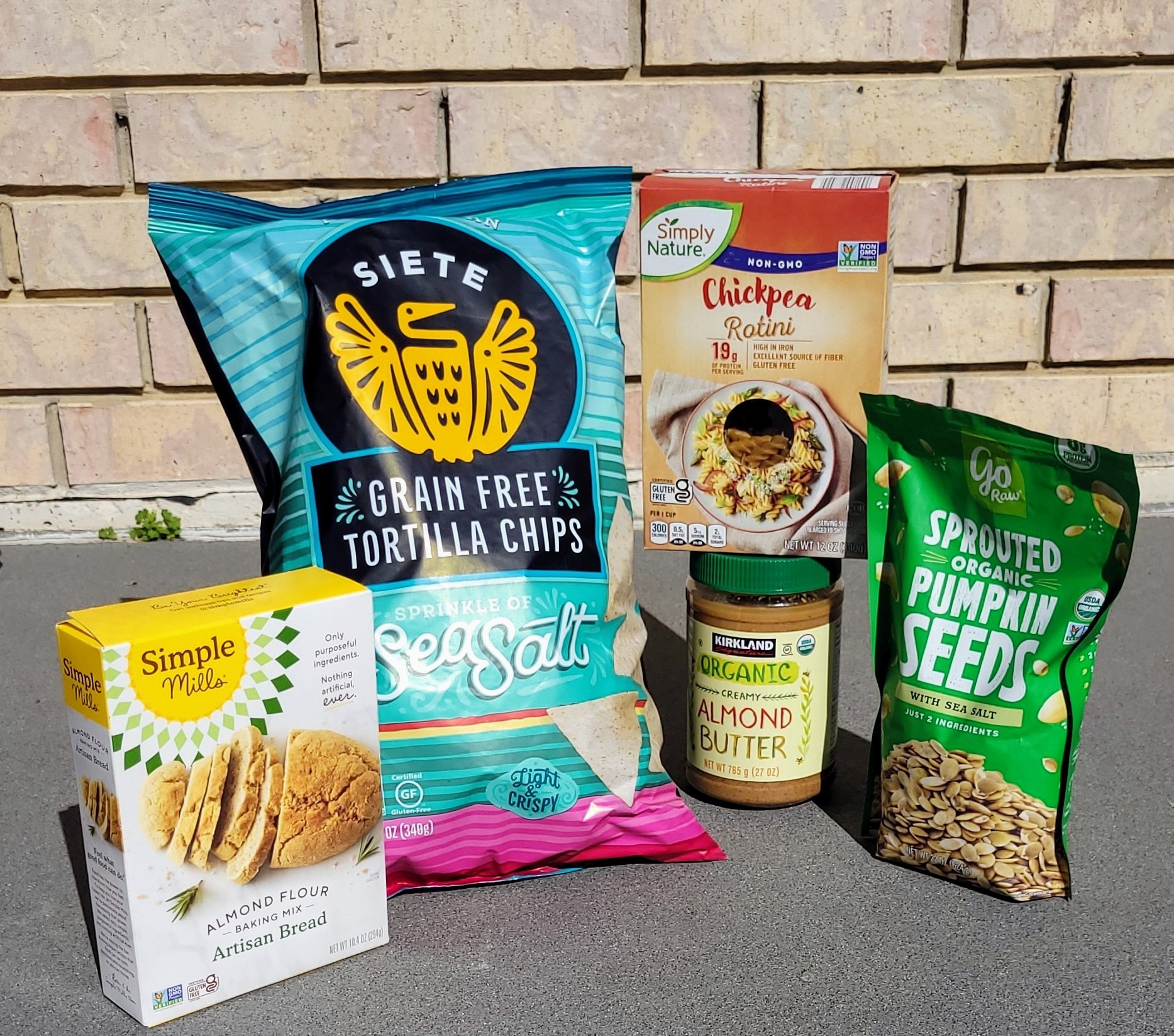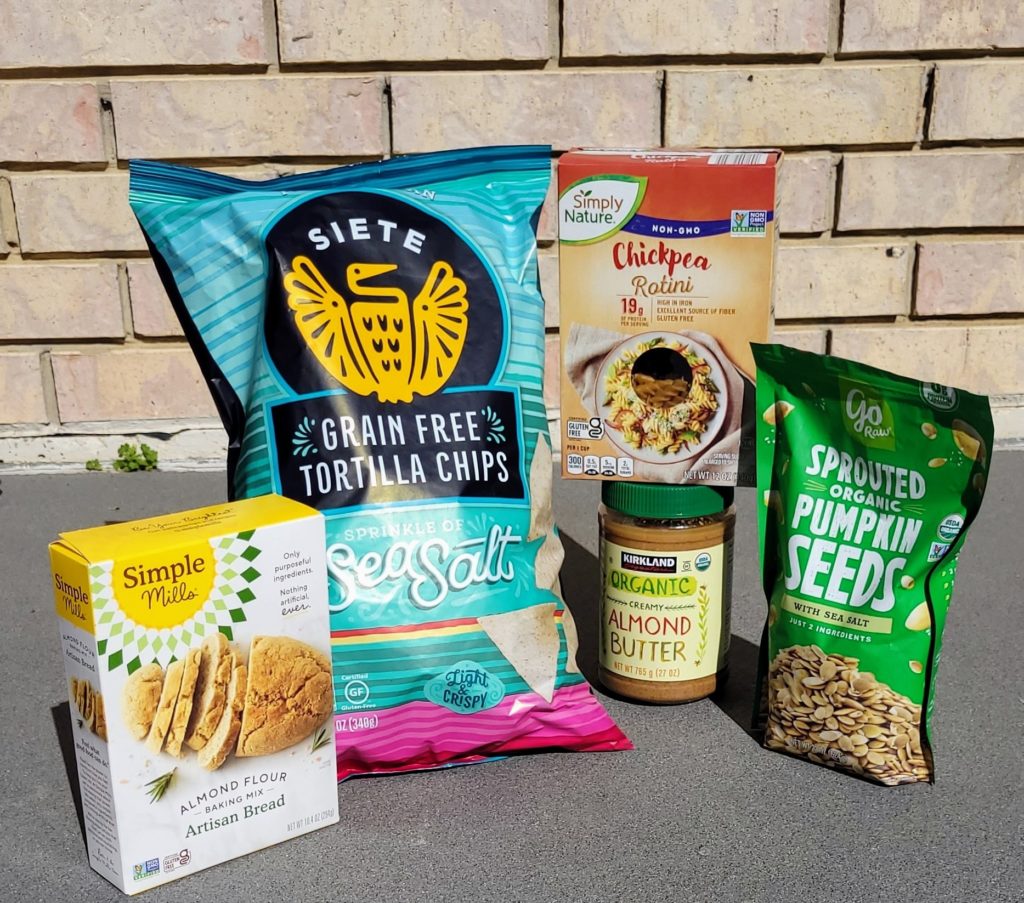get it now
download your free guide
Resolutions Revisited: How to Actually Achieve Your Goals
Workbook
I help people with transform their environment and embrace a non-toxic lifestyle.
HI, I'M ANGELA
DETOX YOUR HOME
Not sure where to start your transformation? Download my free 10-step guide!
GRAB IT NOW

The Importance of Safety Foods
April 9, 2022
If you have many food allergies and sensitivities, you know how important it is to watch your food intake and be aware of its source. Beyond important, it’s essential! One bad experience of eating something to which you’re allergic can really disrupt your life for several hours or a few days as you battle through the symptoms. I have a list of foods that I regularly have on hand for planning meals as well as snacks for quick fuel. I rarely eat out, and if I do, it’s only at restaurants that I feel confident have trained staff who understand allergies and sensitivities. Part of my whole approach in my business is helping clients create safe, holistic health spaces for themselves within their homes, where their food and environment are conducive to their healing and ability to thrive. One of concepts I teach is the importance of having “safety foods.”
What is a safety food?
This is a food product, either pre-made, packaged, or fresh, which you completely trust for your body. You have carefully vetted the item to understand the ingredients, allergen statement, and the brand’s understanding of allergies. You know without a doubt that you can eat the item and not get sick. You trust the brand to clearly mark any changes to the product, because they understand their customer base and needs. Safety foods are things you can buy in a hurry at the store and need a snack quickly. Or you’re on a road trip and quickly stopping by a grocery store to refuel your food supply. Mainly, they are the foundation of building and preparing meals at home for a variety of dishes.

For example, here are a few of my own favorite safety foods (these are NOT affiliate links):
Siete tortillas, cookies, and chips
Organic frozen fruits for smoothies
Mixed organic greens for salads, smoothies, and omelettes
Sweet potatoes
Organic almond butter
Grain-free pasta (I get the chickpea version at Aldi)
Cream of Buckwheat cereal
Sprouted pumpkin seeds
Non-dairy yogurt (I like the Culina brand)
Simple Mills (just about anything!)
Bob’s Red Mill gluten-free flours such as coconut, almond, and tapioca flours
The thing about safety foods is that you rarely deviate from them to try new products. If you don’t live with allergies or sensitives, it’s hard to explain, but most chemically and food sensitive individuals know what works for them and do not change up the system to continue to thrive, and honestly, just function.
That’s why it can be so difficult to introduce new food brands or products to someone who is food sensitive. I get recommendations all the time from well-meaning friends and family members to try “this new gluten-free product” or the latest dish from a restaurant now offering a “gluten-friendly” menu (I cannot stand that term). I acknowledge the recommendation and sometimes I will check it out. Frankly, if the recommendation doesn’t come from another Celiac or someone who is highly food sensitive, I probably will never try it out for myself. If I do, it’s because I did research on the product, called the company (yes, I actually do this!), or spoke the chef/menu creator of the restaurant personally. To me, it’s just not worth getting sick. If I get “gluten-ed,” it can be weeks before I am feeling better again. Not only do I suffer, but I can make life miserable for those around me as well. Celiac Disease an autoimmune condition and I feel it in my joints, see skin changes, feel sick, have abdominal cramping, and more. For other food sensitivities, I and others react in different ways that are still uncomfortable and not fun to deal with. It’s not a life-threatening condition, but I am responsible for managing a household, being a loving wife, running my business, and raising my children. I want to show up for these roles as best as I can and thrive in the life I have been given.
I am also part of online communities that help other food sensitive people find good products and safe restaurants. There is a recent scandal developing in the Celiac world, specifically here in Texas where I live, concerning “gluten-free” tortillas from The Salsa Texan, a small food company. As a quick disclaimer, I never purchased these tortillas myself, nor did I ever eat them. My husband’s coworker recommended them to us when he found out I had Celiac Disease. He generously gave us a package to try. I bake a lot of gluten-free items: cakes, muffins, breads, etc. I am really experienced in using gluten free flours, binder replacements, and manipulating ingredients for a desired texture or taste. I looked at these tortillas and immediately knew not to eat them. I had a gut feeling and I manipulated them through the clear plastic wrapping. I could tell that there was some other unlisted ingredient that allowed the tortillas to pull apart in such a soft and glue-like way, yet the package listed only “coconut flour, lemon and lime juice, baking soda, and water.” I politely declined to eat them, and my husband ate them instead (outside the house, keeping our kitchen completely safe). He said they were delicious and tasted just like flour tortillas. Big warning. My husband eats all my gluten-free cooking and knows the difference between my baking and gluten-containing items.
We didn’t think again about the tortillas. This was over a year ago. Then several months ago, in the Fall of 2021, this same coworker told us he and his wife were getting sick from the tortillas. The Salsa Texan came out with a statement that there had been some cross-contamination with the facility in which they had produced the tortillas, and supply chain issues with the coconut flour they used to make the tortillas. There was a recall of their gluten-free tortillas in late 2021. In March 2022, the company stated they were temporarily not producing the gluten-free tortillas, per their Facebook page. Gluten Free Watchdog has been acting on this issue since November 2021. Gluten Free Watchdog worked with the FDA and The Salsa Texan and you can read the updates here. They tested tortillas bought outside the recall window, which is important to note, because The Salsa Texan claimed only August and September 2021 purchases were compromised. The testing showed that there were ~65,000 ppm (parts per million) of gluten. Regular wheat flour tests at 100,000 ppm. This was not an incidence of slight cross-contamination from a shared workspace, there was wheat flour inside the mix. Additionally, the testing only showed <2ppm of coconut protein, which means there was no quantifiable coconut protein found in the sample. But the ingredient lists coconut flour as the first, main ingredient…suspicious. In my opinion, these were never gluten-free to begin with, despite the company’s intention. My gut and practical knowledge saved me from a potential incident. I give them the benefit of the doubt that there was no malicious intent. I saw that The Salsa Texan is working towards a gluten-free certification in June, which will really help them isolate the issues and adopt strict protocols, but it will take time for them to win back the trust of those Celiac and gluten-sensitive customers.
This is an isolated incident with a lot of focused attention, but sadly, this is not as uncommon as you think. It is vital to constantly review allergen statements, understand the logos for various certifications, and vet companies and brands. I regularly call the customer service number for new-to-me products. I ask to speak with the chef and general manager at a restaurant. I do what it takes to make sure what I am ingesting is safe for me. It’s not the responsibility of anyone else to do that vetting for me, but it is a company’s responsibility to be transparent and genuine in their presentation of a product and ingredient list. In a future blog post, I will teach readers how to read ingredient labels and understand the certifications on a package.
For now, I will stick to my Siete tortillas or grain-free tortillas I make at home. It’s not about having a closed or limited palate. I believe in expanding your horizons to new tastes, textures, and cuisines. It’s about knowing the brands you can trust for these foundational food products that can be used in a variety of dishes. That is the beauty of safety foods- the products and brands that you can 100% trust to bring nutritional value to your body in a safe and allergy-free way.
The information is out there for you to learn, and I harp on this point for my clients to educate themselves and build awareness for any food or other product coming into their homes. Building awareness and increasing knowledge are keys to creating your own health sanctuary within your four walls. If you want to learn how to reclaim your living space as a place of healing by adopting a non-toxic and holistic lifestyle, please check out my programs. I would love to teach you how to put into place household systems, purchase products, and prepare food (using the safety food concept) all for the benefit of safeguarding your health and avoid symptoms related to food and chemical sensitivities.
What are the brands you trust? What your safety foods? I would love learn yours and discover new ones!
Leave a Reply Cancel reply
x
download Now
opt in form goes here... just paste it into the code box below!
leave a comment